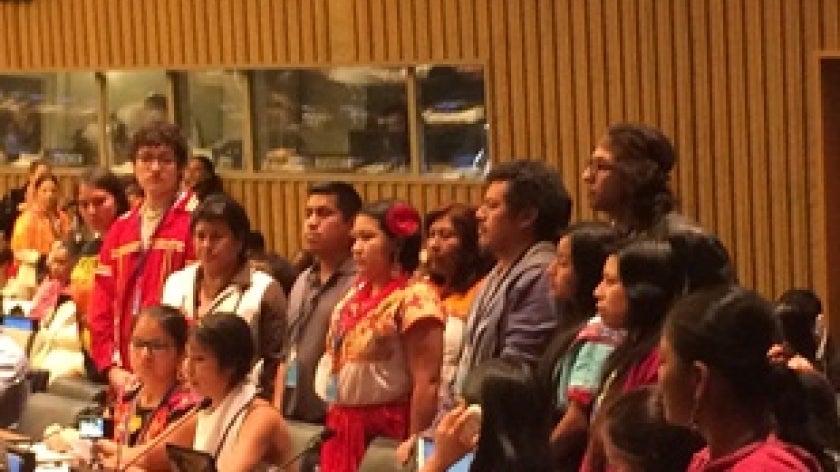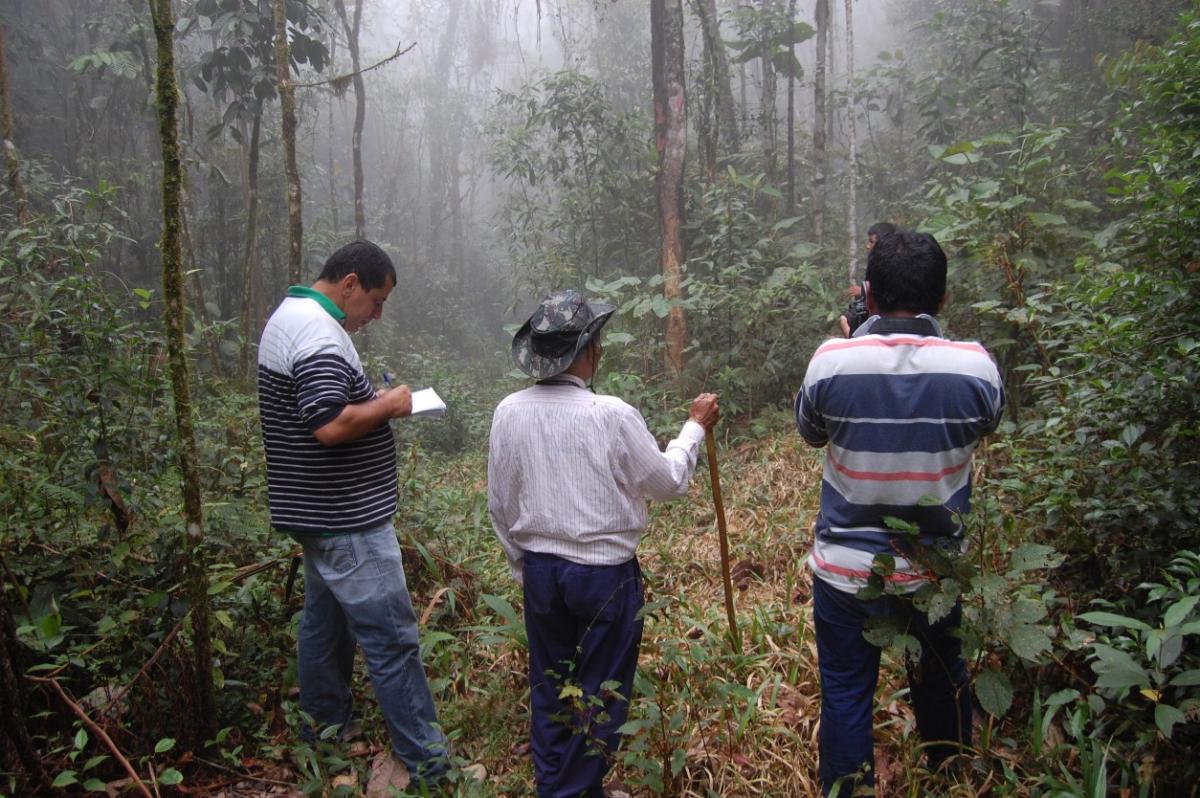
The 14th Session of the United Nations Permanent Forum on Indigenous Issues (UNPFII) is underway at the UN Headquarters in New York City from 20 April to 1 May. Countries, intergovernmental organizations, civil society and indigenous peoples are meeting to discuss issues of importance to indigenous peoples globally. The GEF has been actively engaged in the Forum’s discussions surrounding the participation of UN Agencies and funds in the post-2015 sustainable development agenda and the development of an action plan to enhance implementation of the UN Declaration on the Rights of Indigenous Peoples.
The GEF made a statement at the UNPFII plenary discussion and highlighted its commitment to partnering with indigenous peoples in our projects. “As the global community is discussing the post-2015 development agenda, the GEF will continue to support sustainable development by protecting the global environment through integrated, innovative, and scalable initiatives,” said Ms. Yoko Watanabe, GEF Indigenous Peoples focal point. “The full involvement of indigenous peoples in our projects allows for inclusive, durable, and sustainable development,” she said.

On the sidelines of the forum, the GEF hosted a side event to share its approach to enhancing Indigenous People’s engagement in GEF projects, in collaboration with United Nations Development Programme (UNDP), The Nature Conservancy (TNC), the Brazilian Government, and Articulation of Indigenous Peoples of Brazil (a Brazilian indigenous organization).
The event showcased the GEF/UNDP project in Brazil entitled SFM Catalyzing the Contribution of Indigenous Lands to the Conservation of Brazil’s Forest Ecosystem, which was initiated by indigenous peoples. Presenters from Brazil shared important accomplishments of the project, including the development of mechanisms and tools — such as adoption of the Brazilian National Policy of Indigenous Lands Management — to enable Brazil’s Indigenous lands to be recognized and strengthened as effective areas for conserving forest biodiversity, natural resources and environmental services. Presenters also noted the project’s sustainable financing strategy that leveraged different government funding sources.

Attendants highlighted the strong partnership approach between the government, indigenous organizations and the non-profit sector. The project, through its extensive multi-layered stakeholder engagement planning, including implementation of Free, Prior and Informed Consent (FPIC), has played an important catalytic role in building a foundation of policy and collaboration. Looking to the future, these efforts can be scaled up, and used to support interventions and conservation results at the national level.
Since its inception, the GEF has supported over 220 projects worldwide that involve indigenous peoples. In addition, the GEF Small Grants Programme has directly supported indigenous peoples’ initiatives, through a total of more than 1700 projects with $43 million in grants. These projects generate concrete global environmental benefits with strong linkages to local livelihoods. The GEF hopes that the number of projects will continue to grow through outreach efforts such as these and through coordination with the GEF Indigenous Peoples Advisory Group, GEF Agencies and countries.